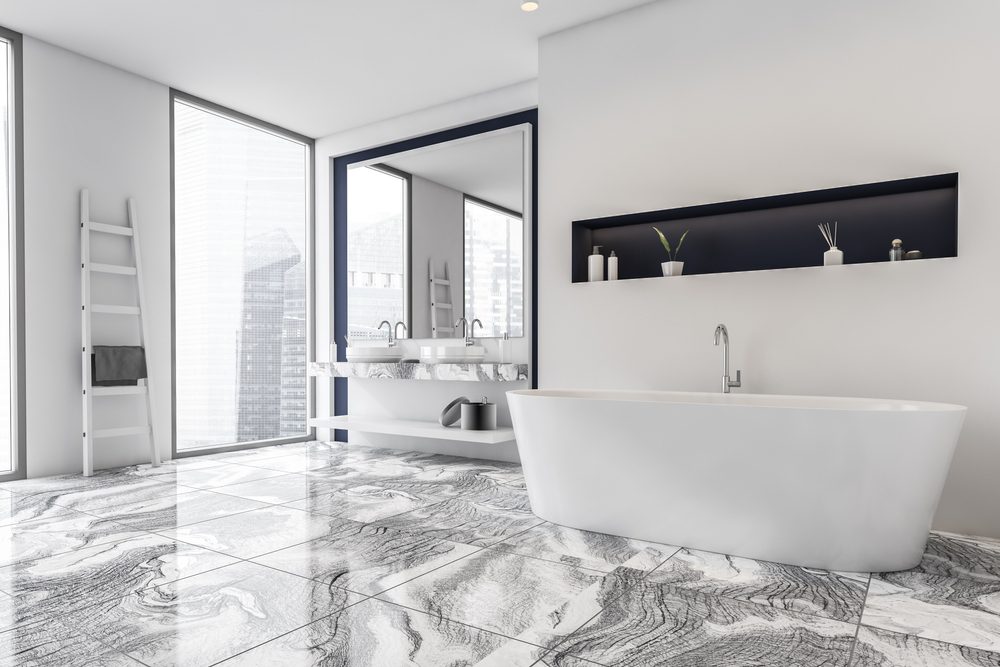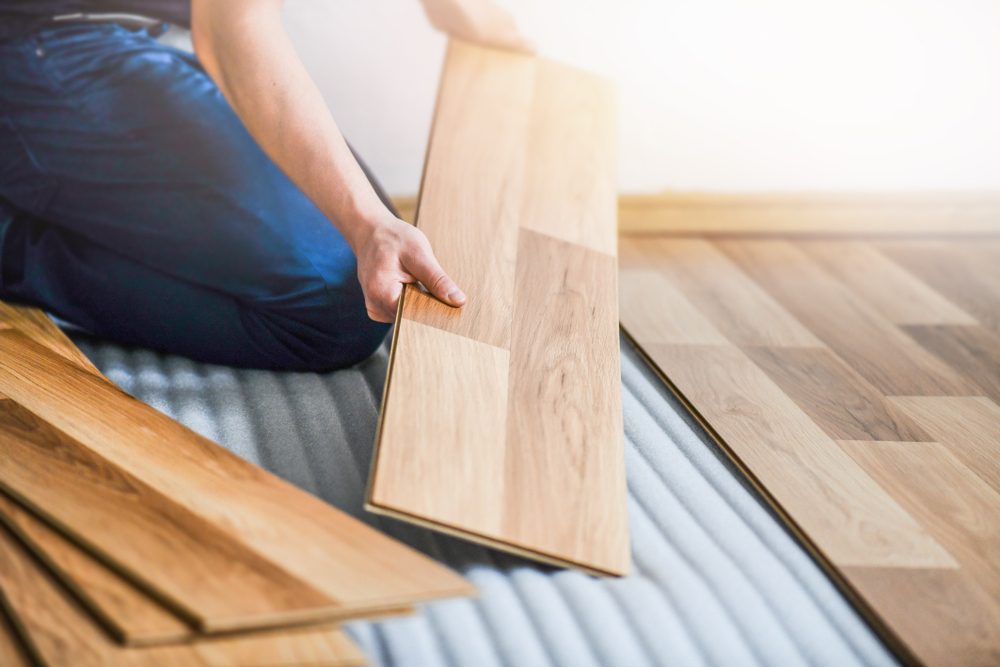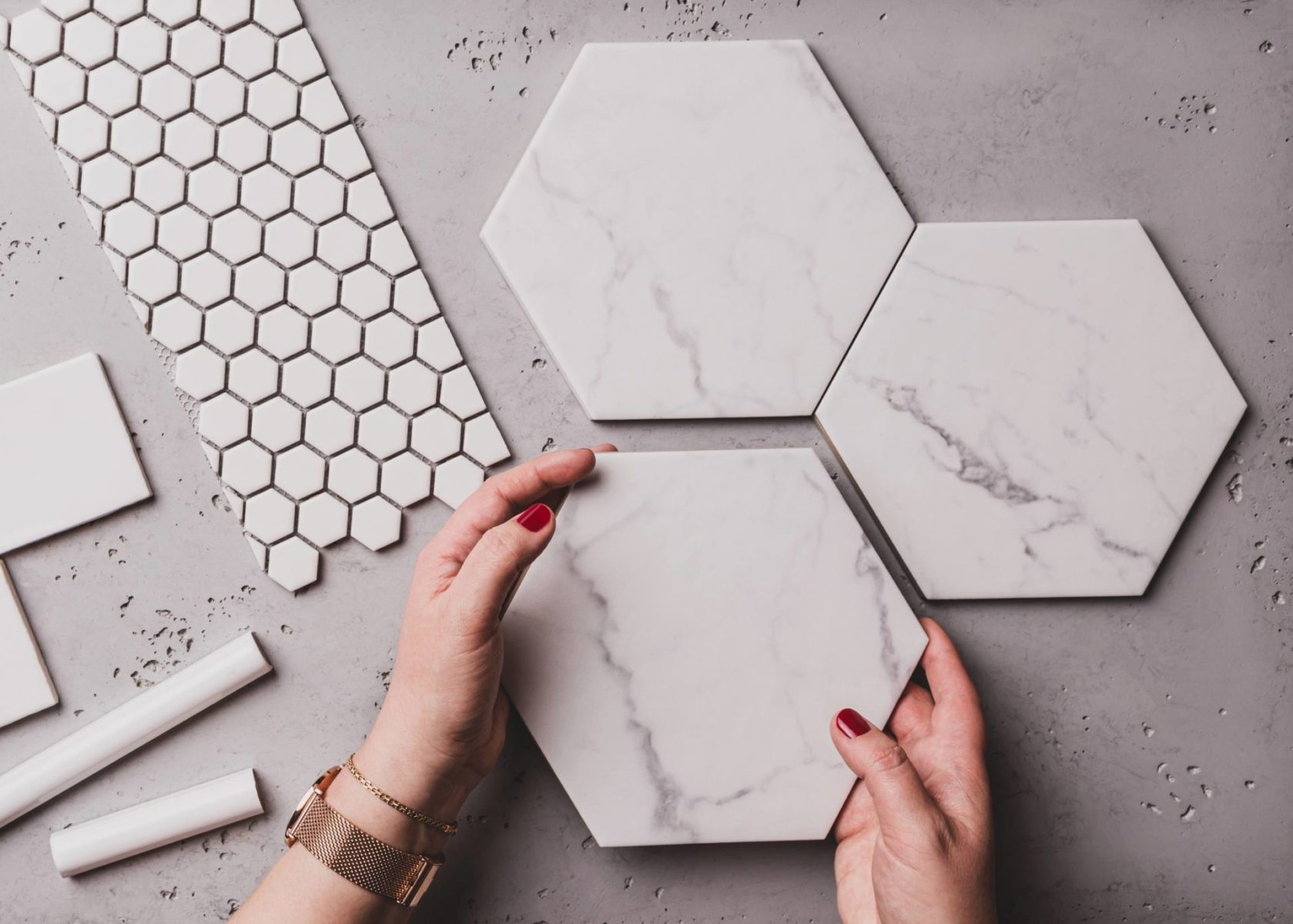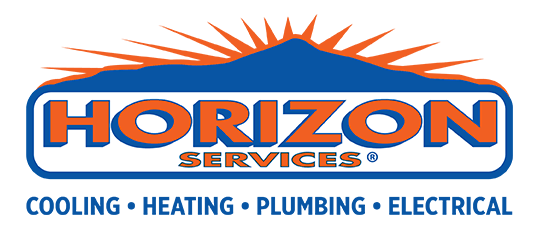
Table of Contents
What Type Of Flooring Should I Purchase For My Bathroom?
Residential flooring has certainly come a long way from the days of avocado green shag pile carpet and faux brick linoleum. With so many bathroom flooring options available, it can be hard to choose the correct material for your living space.
You want the best bathroom flooring that will complement your décor and hold up under the unique demands of a wet and humid atmosphere, aggravated by the high level of heating usually found in the room. Here we have rated some of the most common types of residential flooring, starting with the worst and building up to the best for bathrooms and other damp spaces.
10. Carpet
Not only is carpet in the bathroom virtually impossible to keep clean, it will collect condensation and moisture down to the padding. Thanks to a combination of moisture and heating, mold and mildew will thrive, making your floor constantly damp and giving the whole room a dank, musty smell.
9. Solid Wood
Solid wood flooring might look fantastic, but it is never recommended for bathroom flooring. Parquet and tongue and groove floors are particularly ill suited for a damp bathroom; excess moisture will eventually cause the wood to warp and crack.

8. Laminate Flooring
Laminate flooring that has glued-in seams is actually not a bad flooring option for a bathroom. The glue prevents water from getting into the cracks between floorboards. Some laminate, however, simply locks into place. You don’t want this in your bathroom. Water can seep into the seams, causing the under layer of the floor to blister and warp.
7. Engineered Wood
Engineered wood is better than laminate, because its base is made of sturdier plywood, which resists more water. You probably would not want to install engineered wood in a frequently used bathroom with a shower, but for a guest powder room or half-bath it’s not a bad choice for bathroom flooring.
Tips and Insights: What Are Flexi Plumbing Hoses Used for in Homes?
6. Linoleum Tile
Linoleum is an oil-based material, so it will repel water much better than hardwood or laminate. However, linoleum tile does have seams where moisture can seep in and cause warping or separation.
5. Sheet Linoleum
No seam means you will get the benefits of water-resistant linoleum without the problems of individual tiles.
4. Vinyl Tile
Simple to install and made from waterproof plastic, vinyl tile is a good choice for bathroom flooring. You do, however, still run into some potential problems because of the seams between tiles and there is really no way to seal them against moisture.

3. Ceramic or Stone Tile
If you are looking for the best flooring options for your bathroom, ceramic or stone tiles are an excellent choice for showers and bathtubs. They are durable, water-resistant and look great. Grout seals the seams from moisture. In addition, various types of tile and grout are available that are designed to repel water.
2. Sheet Vinyl
This is perhaps the best bathroom flooring option for a heavily used bathroom. You get all the durability of vinyl flooring without those troublesome seam issues.
1. Concrete
If you are reading this and picturing a bathroom floor that looks a lot like your driveway, hold that thought. Today, concrete flooring is an increasingly popular choice for bathroom flooring because it’s durable, can be sealed against water, and is available in a variety of colors and tints.

Plumbing Repair Services
If you need assistance with a plumbing issue in your bathroom, give our team of technicians a call by phone at 1-800-642-4419 to receive support. Our team of licensed plumbers offer various types of emergency plumbing repair services such as water heater repair, sewer line maintenance, water line replacement, and sump pump repair. Our team has the tools and skills necessary to detect water damage in your living space. Our technicians will perform an inspection of your plumbing system and resolve mild to severe issues to ensure your home is safe.


